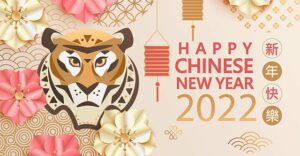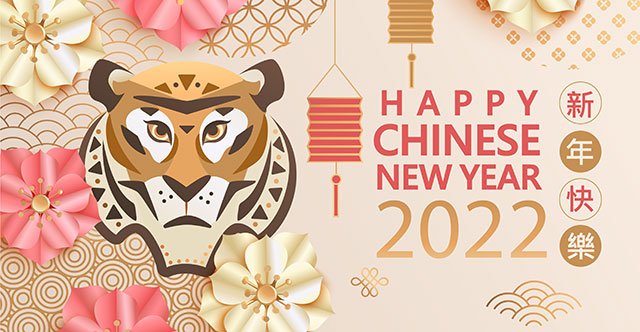Legend has it that a Chinese emperor, hundreds or thousands of years ago, gathered all the animals together and told them that if they were to complete his challenge, they would make it on his zodiac list. These animals had to compete with each other and only 12 would win. Much like the 12-character zodiac in Western culture. So, what happened in the end? Well, the rat, due to his cunning nature, snuck on top of the ox’s back who carried him across the river. Once they were on land, the rat jumped off and was the first animal to make it to the zodiac. The second animal was the ox, while the third animal was the tiger. You may already know that 2022 in the Chinese zodiac is the year of the tiger. Being born in such a year means that the individuals born then will have a ferocious, magnetic, and strong nature, much like the animal itself. But we wanted to do something more original this year and what better way to do it than asking our colleagues in China to share some insights.
Meet & Greet with a Tiger
You most likely wouldn’t have a problem with asking someone about their age might be to go around it the “Chinese” way by simply asking 你属什么?” (Nǐ shǔ shénme?) which means “What sign are you?”. This is a very delicate way to ask “How old are you?” and it is typical for the subtle and different approach Chinese culture has infused in their speech and communication.
But besides this we have a few curious and very cool facts to share with you on the way Chinese people will celebrate this year and with a little glimpse into their language, too.
The 虎 in Chinese culture symbolizes strength and is regarded as a very dangerous animal but at the same time it has another side, which considers their strength their weakness. In fact, there is a very well-know Chinese idiom that says 骑虎难下 (qíhǔ-nánxià) and translated into English it means “If you ride a tiger, it is hard to get off”. In reality, it reminds us of the fact that once you gain speed, it might be difficult to stop halfway.
Another typical feature of the Chinese language is that sometimes a character can mean a few things based on the way it is used. And you can clearly see in the simple word 虎 (tiger), which if you use as noun means the animal tiger, while if you use it as an adjective means “brave without wisdom”. And who doesn’t want to be associated with such a wonderful sign from the zodiac, right?
Animals & New Year Greetings – why not?
 A very fascinating feature we discovered from one of our colleagues, Darcy, is that actually in China when people greet each other for New Year, they often use the animal of the year in their greetings. If it is the year of the Rat it will be some expressions related to the most typical features of the rat. And because this year is the Year of the Tiger, we found out that locals will use expressions which include the tiger’s qualities in their greetings. So here is a special selection of a few expressions you can use if you have some Chinese friends and you want to greet them properly:
A very fascinating feature we discovered from one of our colleagues, Darcy, is that actually in China when people greet each other for New Year, they often use the animal of the year in their greetings. If it is the year of the Rat it will be some expressions related to the most typical features of the rat. And because this year is the Year of the Tiger, we found out that locals will use expressions which include the tiger’s qualities in their greetings. So here is a special selection of a few expressions you can use if you have some Chinese friends and you want to greet them properly:
虎气冲天 /Tiger is soaring/ – Be powerful and successful in the Year of the Tiger
鼓足虎劲 /Galloping up/ – Wish you have the bravery and strength of Tiger
冲天虎气 /Soaring to the sky/ – May you have the strong power of Tiger
Now that we’ve equipped you with some nice well-wishes for your friends in China, it is time to go and celebrate.
But before we go…
There are a lot of ways to showcase the differences in languages and the Chinese New Year is a typical example of how Chinese language and culture are different from others. All these small nuances of a character changing its meaning or an expression hiding another meaning deep inside can be found in simple daily life examples. The thing is one’s eyes should be opened before looking for them because if you don’t know what you are looking for it is easy to miss it. Which would be a real pity because languages are such a beautiful universe everyone has to touch…
执个虎耳 – Hold a tiger ear… 🙂
